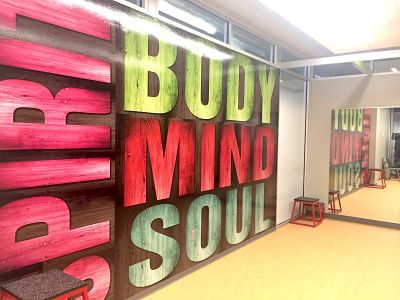 Recently over 100 ACT team members participated in a session on Mindfulness: Living and Learning as if it Matters. Meditation, mindfulness, and stress reduction are all hot topics right now. Google, Apple, and many other corporations are encouraging employees and customers to be present, mindful, and breathe. I was introduced to mindfulness a few years ago when Bev Klug first visited ACT, Inc. Bev, Director of Mindfulness Programs at the University of Iowa, started the Mindfulness-Based Stress Reduction (MBSR) program at the University of Iowa Health Care system in 1996. Since then, in addition to the administration of the programs, Bev has taught mindfulness to nearly 2,000 people through MBSR and hundreds of others in graduate groups, university undergraduate mindfulness courses, and medical students and residents.
Recently over 100 ACT team members participated in a session on Mindfulness: Living and Learning as if it Matters. Meditation, mindfulness, and stress reduction are all hot topics right now. Google, Apple, and many other corporations are encouraging employees and customers to be present, mindful, and breathe. I was introduced to mindfulness a few years ago when Bev Klug first visited ACT, Inc. Bev, Director of Mindfulness Programs at the University of Iowa, started the Mindfulness-Based Stress Reduction (MBSR) program at the University of Iowa Health Care system in 1996. Since then, in addition to the administration of the programs, Bev has taught mindfulness to nearly 2,000 people through MBSR and hundreds of others in graduate groups, university undergraduate mindfulness courses, and medical students and residents.
Mindfulness is an evidence-based practice increasingly integrated into healthcare, education, businesses, justice systems, sports teams and more. Scientific research supports the benefits and importance of mindfulness practice. During the session, team members learned about what mindfulness is and isn’t; experienced some brief mindfulness practices; received an overview of the research in education and underserved learners; and learned how to access local programs at the University of Iowa Hospitals and Clinics.
A highlight of the program was information about mindfulness and education. We learned about what helps children learn including attention and focus, curiosity, stress resilience and emotional self-regulation. Bev shared a great example of mindfulness in action with the Holistic Life Foundation (HLF), a Baltimore-based nonprofit organization committed to nurturing the wellness of children and adults in underserved communities. The approach is comprehensive which helps children develop their inner lives through yoga, mindfulness, and self-care. HLF is dedicated to developing high-quality evidence-based programs and curriculum to improve community well-being. We watched an inspiring video about how HLF is empowering communities at Robert W. Coleman Elementary in Baltimore, MD. The HLF program serves as a model for other schools across the country on how integrating mindfulness into the classroom can be highly effective.
Mindfulness is a journey and a practice that many schools and individuals are beginning to practice. For example, Mindful Schools offer resources to under-resourced public schools facing high turnover rates and toxic stress. They “offer educators practical skills for self-care, facilitation, and connecting with youth, providing simple, effective mindfulness practices that can be integrated into the school day and adapted for diverse environments.” To learn more on how you can practice mindfulness, check out the following resources:
- Headspace: Guided Meditation and Mindfulness
- 10% Happier: How I Tamed the Voice in My Head: Reduced Stress Without Losing My Edge, and Found Self-help That Actually Works – A True Story by Dan Harris
- Real Happiness: The Power of Meditation: A 28-Day Program by Sharon Salzberg
- Mindfulness for Beginners: Reclaiming the Present Moment – and Your Life by Jon Kabat-Zin
We hosted the mindfulness program in collaboration with ACT’s Talent Strategy Department. At the Center for Equity in Learning, we are regularly working with partner organizations to close opportunity gaps and improve learning for students from families with lower incomes, working learners, English learners, students with accessibility needs, and students from underrepresented minority backgrounds. Mindfulness is a holistic tool that can help all students succeed in the classroom and beyond. We were honored to have Bev Krug back for this event to continue conversing about mindfulness and its importance, especially for low-income students. I encourage you to add a little mindfulness into your everyday routines, it can be greatly beneficial.
